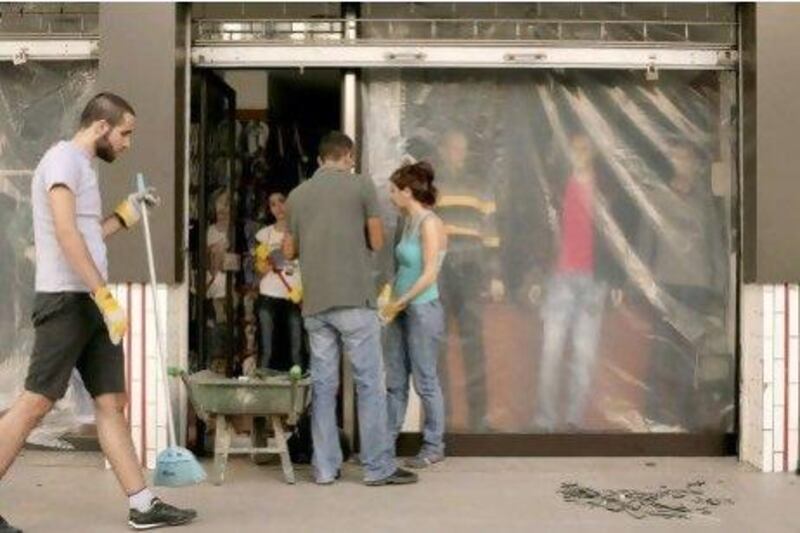Hoteliers and retailers across Beirut are predicting a dire Eid Al Adha weekend after a slew of cancellations in the aftermath of the bomb blast that killed the country's top spy chief.
Tourists and business travellers have been shunning travel to Lebanon all week, leaving hoteliers with occupancy as low as 25 per cent on what is usually one of the busiest weekends of the year.
"The Eid period is practically shot," said Haitham Mattar, the vice president of sales and marketing for Hilton Worldwide, which operates two hotels in Beirut.
"This has impacted us on one of the most important weekends. If this continues we will see an impact for the following months."
Lebanese troops battled unrest on the streets of Beirut and other cities in the wake of the bomb that ripped through the Achrafieh district of the capital last Friday, assassinating Brig Gen Wissam Al Hassan, the intelligence chief.
"The blast effectively killed tourist activity this Eid Al Adha," said Ziad Annan, the director of A&S Chronora, jewellers in Downtown Beirut and the official sellers of Rolex in Lebanon.
"Important Arab clients coming in from the Gulf have cancelled. We have been affected, no doubt."
The bomb blast and subsequent unrest are a huge blow to the tourism and retail sectors, which make up a large component of the Lebanese economy.
Lebanon's GDP is made up more than 75 per cent by service-based sectors, according to the CIA World Factbook. "Of course we have had a big number of cancellations," said Roy Gharios, the director of sales at the Ramada Beirut Downtown. "For the first six months of the year, it was great but since things have gone bad in Syria, business has gone down."
Lebanon was plagued by sporadic unrest between 2005 and 2008, in the midst of a number of assassinations that began with the killing of Rafiq Hariri, a previous prime minister praised for reconstructing the country following the civil war.
Now, Lebanese fears of the economic impact of the conflict in neighbouring Syria have become a reality.
Tourists numbers fell 11 per cent in June to 157,000, compared to the same month a year earlier, according to official figures from the ministry of tourism.
The direct contribution of the travel and tourism sector was 6.22 trillion Lebanese pounds (Dh15.21 billion) last year, or 9.8 per cent of total GDP, according to the World Travel and Tourism Council.
But the total contribution, through services and businesses that are complementary or dependent on the tourism industry, was 2.24tn Lebanese pounds, or 35.2 of GDP last year.
"We are definitely in an economic crisis," said Halim Hanna, a Lebanon distributor of a high-end retail brand. "We are certainly impacted by the unrest in Syria as it effectively is our only terrestrial border. For one, the flow of goods and people are affected."
Many hotels throughout Beirut have already had a slow summer after the UAE's Ministry of Foreign Affairs, along with other Gulf countries, advised citizens not to travel to Lebanon after clashes in the northern Lebanese city of Tripoli in May.
Hoteliers say they have seen little-to-no tourists from the Gulf countries in recent months as the travel warnings are still in place.
"As you're aware, Gulf tourists are not coming to Beirut," said Elie Khoury, the food and beverage manager of the Radisson Blu Martinez. "It's been a bad year. This period has been going on for a long time. We have been facing this for five months and it's continuing."
Mr Khoury said bookings had fallen 10 per cent immediately after the bomb blast last week and that he now expected occupancy at the hotel to be as low as 25 per cent over the holiday weekend.
"In the previous years, we have faced situations like this for a period of one month then things came back," said Mr Khoury. "But since May we have been suffering."





